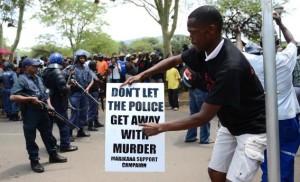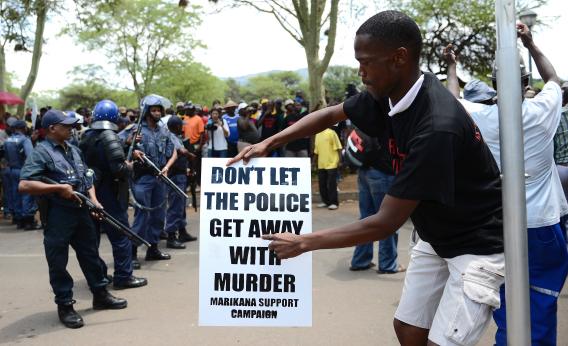 Those that read my first blog may have sensed some personal anxiety growing about the potential level of interest that the government of my African host country may take in me.
Those that read my first blog may have sensed some personal anxiety growing about the potential level of interest that the government of my African host country may take in me.
Since that post, you can replace the word “potential” with “actual” and, to fast-forward a few weeks, I now find myself taking refuge in Europe, escaping an inevitable late night knock-on-the-door and the kids being woken up by armed security police searching my house. You’ll excuse my missed deadline.
Thankfully, we dodged that grim incursion into our family life. What we were unable to avoid, though, was the tension of thinking you might be under investigation and the chilling confirmation (which we received via a third party) that my name was, in fact, on a targeted watch-list.
The fact that my own personal brush with big brother occurred at a same time when the spotlight is shining brightly on the world of spooks in New Zealand and globally is purely coincidental (the government of my host country is old school; their equivalent of PRISM is to steal your laptop and hope you forgot to log-out of Facebook).
Yet despite my own personal stress, the poignancy of the timing is not lost on me.
You might be tempted to ask why I was targeted for investigation. But, if your assumption behind that question is that I must be guilty of breaking some law, then your question is a naïve one.
Because in the country I live in, the world of secret policing is not about catching criminals, it is not about preventing those who would break the law; it is about stopping the activities of those who work within the law, but in a way that those with power do not like.
It is not a tool to serve the common good; it is a force to benefit the powerful.
One of the interesting things I have observed is that the security intelligence agency does not actually serve the government’s agenda anymore either.
Such is the scale of the supra-legal powers and the resources given to the spooks that they have become too formidable even for the government to control. Thus, it serves its own agenda and is accountable to no-one, not even an autocratic President.
This may, at first, seem strange, but it should surprise no-one. History has shown us over and over, that when you give a person or an organization too much power – no matter how well intentioned – it quickly corrupts and the person or organization begins serving objectives and using methods that may differ very greatly from the ones it was given that power for.
Of course, the country I live in is very far from being considered a model for democracy. So, perhaps it is unsurprising that its spies are not working within any acceptable boundaries.
You might be thinking that my ugly entanglement with the authorities was far more likely to occur in a despotic African state than in a western democracy. And you’re probably right. Yet current events prove that democracy is no automatic guarantee on setting appropriate limits for covert government powers. Rather, democratically elected governments must actively choose to set those limits and maintain them through transparent oversight.
The inevitable result of a failure to do this is a late night knock-on-the-door to search the home of someone who has broken no law, but just happens to be doing something that the government of the day (or even the security agency, acting independently) does not like.





